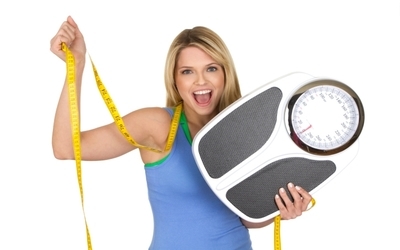No Diet Required: How to Feel Full while the Pounds Melt
Does the sound of the word “diet” make you cringe? I mean, sure, you want to lose a few pounds, but does that really mean you have to crunch on celery sticks for dinner and sweat it out at the gym? Absolutely not. Using the power of mental wellbeing, the timing of your daily calendar, and smarter decision-making, you can enhance your weight loss to feel full while the pounds melt away – no diet required. Just take a look at a few tips that have come out of scientific research and expert experience:
1. Take an Earlier Lunch: Wellness writer Cathy Garrard details, ‘New research from TuftsUniversity found that people who ate lunch after 3pm lost significantly less weight than those who ate their midday meal earlier. Researchers also found that the late eaters consumed fewer calories during breakfast, and they were more likely skip a morning meal altogether — furthering the case that a breakfast truly is the meal of weight loss-champions.’ Laura Cipullo, RD, adds, ‘I tell all my clients to eat breakfast. Once you start eating, your metabolism clicks on, and it stays revved throughout the day.’
2. Pile Your Plate with Protein: ‘Protein is very important for its satiety,’ says Christine Gerbstadt, MD, RD. ‘Plus, if you eat more of it, your body has to work harder to burn the calories because it takes more work to digest the amino acids.’ In fact, a new study in the Journal of Nutrition Education and Behaviour found that women who chose to eat more of this muscle-building nutrient were more successful at losing weight than those who didn’t consciously pile on the protein.
3. Picture a Hearty Meal: ‘If the thought of having a mere salad for lunch only makes your stomach grumble more, let your mind drift to something a little more delicious — and substantial,’ suggests Garrard. ‘A study from the University of Bristol found that people who think about eating a large portion of food feel fuller later than those who mentally conjure up a skimpy, unsatisfying meal. Researchers showed volunteers either a small or large serving of soup just before lunch, and two or three hours later, those who’d seen a bigger bowl reported significantly less hunger than those who had seen a smaller one.’ Cipullo explains, ‘It’s about feeling psychologically satisfied. If you believe you got the meal you really wanted, you don’t feel deprived.’
4. Ditch the Distractions: Cipullo points out, ‘Mindful eating is a big nutritional trend right now. You will feel more satisfied with your food if you are paying close attention to the meal.’ This was the finding of a new study published in the American Journal of Clinical Nutrition. The researchers found that if you out the TV and other gizmos and pay closer attention to what you’re eating — including the taste, texture and aroma – as well as chewing more slowly, you won’t consume extra calories unnecessarily.
5. Use Olive Oil: According to Garrard, ‘In a recent study, Austrian researchers examined the satisfaction level of different types of edible fats: lard, butter, grapeseed oil, and olive oil. Over the course of three months, study participants ate 500 daily grams of low-fat yogurt enriched with one of those four oils. Olive oil was the most satiating, as reflected by high levels of the hormone serotonin in the blood of those who ate the variety. Surprisingly, researchers found that it was the aromatic compounds in olive oil that gave the healthy cooking staple its competitive edge, and that Italian-made varieties contain larger amounts of them.’


Comments are closed.